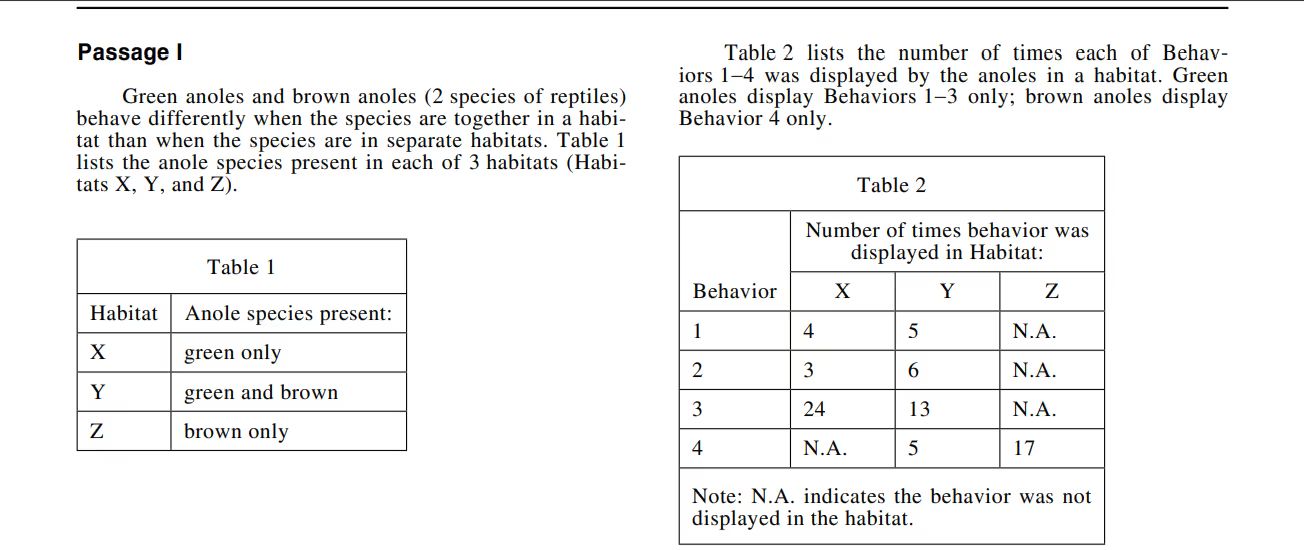




Key Takeaways
- ACT Science is optional digitally but may still be required by top STEM colleges.
- The section tests reasoning and data analysis, not science facts or formulas.
- Strong Science scores boost applications, especially for analytical or STEM-focused programs.
The ACT Science section has become one of the most discussed topics since it was made optional with the introduction of the digital ACT. Because the ACT impacts the student’s college admissions, it’s only natural that students and their educators evaluate the choices carefully.
It’s not difficult to see why some students may hesitate to take this section, if given a choice. Previous scores suggest the ACT Science section was a bit of a challenge for many students.
The table shows that scoring high in the Science section is slightly harder than in the other sections. For example, a 33 in English places you ahead of 96% of test-takers, while the same score in Science puts you ahead of 99%. That means fewer students reach top scores in Science, making it a tougher section overall.
This article covers everything you need to know about the ACT Science section. We begin by briefly talking about what it is and what makes the ACT Science section optional. We also discuss whether you should skip it, how colleges view it, and how to include it in your prep plan.
What is the ACT Science section
The Science section on the ACT test evaluates the student’s scientific skills by using data and arguments presented in charts and passages.
It’s important to remember that the section doesn’t require the student to answer questions from Science concepts or formulas they might have memorized. Instead, the questions will test data interpretation, analysis, and scientific reasoning based on the given passages. To that extent, it is comparable to reading comprehension questions.
The section allows 35 minutes within which to answer 40 questions; that’s an average of a little over 52 seconds per question.
Is the ACT Science section optional?
Short answer: Yes. Long answer: the Science section is optional only in the digital ACT; for someone taking the conventional paper-and-pencil version, it’s a compulsory section just like before. By September 2025, it will be optional in the paper-and-pencil version as well.
On the other side of the test, many colleges require students to submit their scores in the Science section. Also, some of the top-rung colleges like MIT or Caltech give more importance to applications that come with the Science sections scores of the ACT. Hence, for students targeting those colleges, the Science section continues to be compulsory.
Whether students should opt out of the Science section is something we’ll discuss at length a little later in this article. For now, we’ll just point out that there are significant trade-offs in both cases, so it’s important that the student makes a decision only after weighing all the factors carefully.
What the ACT Science test covers
For students wondering what Science is on the ACT, here’s the answer: it covers physics, chemistry, and biology, along with their applications in areas like environmental Science and space research.
As mentioned earlier, this section tests the student’s ability to understand data presented through graphs and charts, research summaries, and scientific skills. Students would be tested on how well they can understand scientific experiments, their outcomes, and hypotheses.
The questions are spread across about 6 passages that present research summaries and data. Typically, one passage presents contrasting viewpoints on the same topic, and its questions require students to weigh the rationale behind the viewpoints.
The stress isn’t merely on how much a student remembers from the Science classes they took. That said, it’s worthwhile to note that being conversant with scientific concepts certainly helps.


Should students take the new digital test to avoid the Science section?
By choosing to take the digital ACT, your students will have the option of attempting or skipping the Science section. However, this decision isn’t that simple; there are several pros and cons.
One of the first factors to take into account while making this decision is the colleges your students target. If scores of the Science section is required in these colleges, your students will have to attempt the Science section. Some colleges don’t mandatorily require Science section scores, but
Next, if a student does well on the Science section, that score reflects their strong analytical ability. That’s because even though it’s a specific subject, the skills tested are analytical in nature. Hence, it impresses even the non-STEM programs admission committees.
Against that, taking the Science section means students will be spending more time on the test.
In absence of adequate practice and lack of appropriate understanding of how long is the Science section on the ACT, it would add to the test fatigue and negatively impact overall scores.
Finally, if the student has in mind colleges that don’t value the Science score, even the time they spend in preparing for the section is wasted. That’d add only to their test prep time without any clear benefits.
In summary, the student’s strengths, strategy, and choice of colleges should decide whether they should take the discretionary ACT Science section. Optional should be interpreted as a carefully thought-out decision, not as something that can be determined at the last moment.
What about when the paper test upgrades? Should I leave off the Science section then?
By September 2025, the ACT test-taking authorities intend to align the paper-and-pencil version with the digital version of the test by making the ACT Science section optional in the paper-and-pencil version too. This reflects the changing perspectives of standardized testing in how they are offering more choices so that students may be able to deliver their best performance.
As we said earlier, the decision to take or avoid this section should be based on the student’s strengths, target colleges and majors, comfort level with Science, and whether they are willing to embrace the additional challenge to prepare for one more section.
We’ll add just one more point here: attempting the section would reflect a more well-rounded training, so if the student is up to taking up the challenge and scores well, it can turn into a wise decision.
Why would colleges require a Science section that the ACT says is optional?
That’s a fair question: if the ACT Science section is optional, why do some colleges require it? The answer can be discussed from multiple angles, including how the other optional areas - like essay writing, for instance - of standardized tests are treated.
The first and the most obvious answer lies in the kind of programs a college offers. Just like arts programs are rooted in arts and language, STEM programs pivot around science and math. Hence, it’s only natural that colleges want to learn a student’s aptitude and comfort level with science. The Science score can serve as an informal indicator of how well a student can handle scientific data.
In addition to this, colleges want to really see a student’s reasoning and data interpretation skills, that too within the context of science reports and research. During their coursework, students would be studying significant amounts of reports, so a student who does not have those basic skills will find it difficult to work through the courses. In short, the Science section tests the STEM-readiness of the student.
Then there’s the fact that an optional section isn’t irrelevant. It’s just that some courses may find the scores of the Science section more important and pertinent to their course. So it’s a matter of choice given to colleges if they would like to consider the scores of the Science section.
And finally, the boundaries. At the end of the day, ACT, Inc. is a testing body. It can set its own rules, but it cannot dictate college admission requirements or guidelines. If a college feels their course requires working intensively with science related topics, it will naturally set its criteria in order to identify students who are better suited for STEM courses. All that the ACT can do is conduct the test and leave the rest to the colleges.
How do I incorporate Science into a prep plan for this new test?
Ever since the ACT made the Science section optional, students have been asking whether they should still prepare for it—and understandably so. Everyone wants to optimize their prep.
Start with official ACT practice questions. As a tutor, ensure students get comfortable with the passage and question types. Teach them to distinguish between logical conclusions and assumptions.
Also, train them to pay close attention to qualifiers in data. For example:
- Many students in my high school play ping pong. This is vague and non-quantifiable.
- Most students in my high school play ping pong. This implies clearly over 50%.
Small wording differences can significantly impact interpretation.
Next, help students distinguish between charts and tables. Consider the table and chart given here. From the graph, you can infer more students learned Korean in 2013 than in 2005, but not exact numbers. Tables give precise data but don’t support interpolations for values of years like 2009 or 2013.

Train students to focus on scientific reasoning, and not memorizing formulas or notations. The ACT Science section tests their ability to interpret research summaries, studies, and hypotheses, not recall complex facts.
Also, teach them how to analyze experiments and recognize their limitations. For example, a study on Venezuelan diets can’t be used to generalize about Brazil or Colombia, even if they're neighboring countries.
Finally, ensure ample test practice. Use EdisonOS to schedule timed mock ACTs with high-quality questions and practice under timed conditions. This practice will help them handle time pressure and manage their time better.
Summing up
By making the ACT Science section optional, the testing body has only given students a choice; it has not undermined the importance of that section for relevant programs.It tests key skills like data interpretation, logical reasoning, and scientific analysis. These skills matter mainly across subjects and STEM college programs.
As a parent or a tutor, it’s your role to explain to the students that the decision to take it should depend on their strengths, target schools, and long-term goals. Skipping it might offer short-term relief, but taking it can strengthen your overall application. Help them focus on building reasoning skills, practicing with real questions, and taking timed mock tests to boost confidence and performance.
To understand how EdisonOS can help you in this journey, why not book a call with one of our ACT experts right now?
Frequently asked questions
No. It focuses more on interpreting graphs, analyzing experiments, and understanding scientific reasoning than memorizing facts from biology, chemistry, or physics. It won’t assess the student’s ability to recall the science they’ve studied during highschool. That said, knowing the basic scientific concepts certainly makes it easier to read the passages, helping build confidence.
Some do, especially for STEM programs. Some non-STEM courses may view it as a measure of reasoning skills and academic breadth, but don’t attach a lot of weight to it. The rest of the colleges just ignore it. Students should check with their dream colleges to learn if the colleges will consider the scores from the Science section.
Statistically, fewer students score in the top percentiles on Science compared to English or Math. This suggests it’s slightly more challenging. However, the challenge is more due to time pressure and unfamiliar formats, something that right guidance and adequate practice can overcome without much trouble.

Tutors Edge by EdisonOS
in our newsletter, curated to help tutors stay ahead!
Tutors Edge by EdisonOS
Get Exclusive test insights and updates in our newsletter, curated to help tutors stay ahead!
Recommended Reads
Recommended Podcasts






.png)




.png)
.webp)
